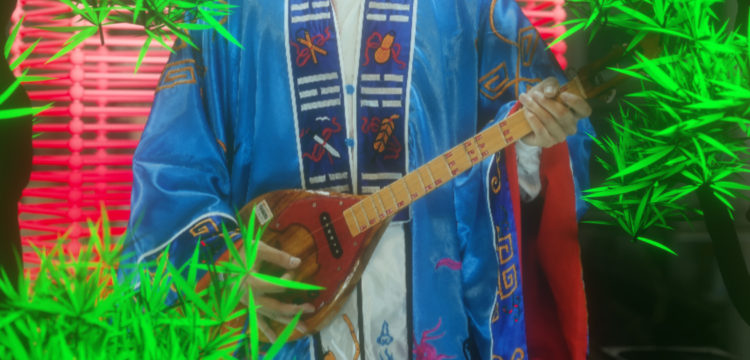Turning Back to a Second Summer of Love
Wu Tsang, Josh Blaaberg and Jeremy Deller on rave and youth culture
The Centro per l’Arte Contemporanea Luigi Pecci presents the Italian première of the film exhibition Second Summer of Love, commissioned and produced by Gucci and Frieze.
“Second Summer of Love is a series of artists’ films that narrates another anniversary: 1988, the year electronic music and youth culture exploded in the UK, later expanding into Europe and the US. The roots of acid house and rave scenes—the way these revolutionized youth lifestyles and how they had a lasting impact on contemporary culture comparable to that of the counter-culture of the 1960s—provide inspiration for the work by Jeremy Deller, while the scenes that preceded and influenced rave culture inspire the works by Wu Tsang and Josh Blaaberg.
Jenn Nkiru recently joined Jeremy Deller, Wu Tsang and Josh Blaaberg to create the fourth film of the series. Focusing on Detroit and Berlin techno culture, the film will premiere at Frieze Los Angeles, in February 2019.
Wu Tsang, Into a Space of Love (25’33”), 2018
In this magical realist documentary, Wu Tsang explores the history and legacy of New York house music, rooted in the real-life experiences of a predominantly black and Latino queer community, and the struggles of queer/POC liberation movements. The film blends past, present, and near-future visions of New York nightlife from intergenerational scene-makers and DJs, and questions the uroborosian tension between underground culture and appropriation. It mixes the tenderness of aging with the vigilance of youth, and digs into what it really means for people to make a deeper, lifelong commitment to nightlife.
Wu Tsang is an award-winning filmmaker and visual artist. Her projects have been presented at museums and film festivals internationally, including MoMA, Guggenheim, Whitney, LACMA, Tate Modern, Stedelijk, Berlinale, Hot Docs, and SXSW. Wu was a 2016 Guggenheim Fellow (Film/Video) and is currently shortlisted for the 2018 Hugo Boss Prize. Her first feature film WILDNESS (2012) which tells the story of Los Angeles club, The Silver Platter, and the LGBTQ community it supported, premiered at MoMA’s Documentary Fortnight Festival and won ‘Best Documentary’ at Outfest Los Angeles.
Josh Blaaberg, Distant Planet: The Six Chapters of Simona (28’44”), 2018
Italo disco is often seen as the lesser cousin of US and UK pop, a cultural hierarchy built on a set of shared assumptions relating to nationhood, language, identity and originality. In Distant Planet, Josh Blaaberg combines fiction, archive and interview to explore how emotional impulses are at the core of these and all assumptions: how reality and desire are inherently intertwined. The film imagines a universe where mid-1980s New York runs riot for the latest Italo releases and Campari fountains are installed by Presidential decree. It presents the genre in all its glamour and artifice, celebrating its anonymous stars who sang in borrowed English under invented American names. Starting from the premise that life is as ephemeral as a short-lived Italo hit, the film positions the genre as being defined by loss: of language, voice and dashed hopes for a better future. It goes on to explore how the eternal desire to overcome loss is the true meaning of luxury. The film draws parallels between the loss of loved ones, the strange unreality of experiencing grief in childhood, and the unique combination of happy and sad sounds that define the music. Through archive footage, interviews and newly-imagined realities, Distant Planet takes three Italo disco stars and journeys with them as they reconnect with the forgotten fantasies of the music. In doing so, our Italo stars are elevated to their rightful places in pop history. Immortalized as demi-gods on the slopes of Mount Etna, all loss is defeated and cultural hierarchies overcome.
Josh Blaaberg is a filmmaker and visual artist, whose work spans both the film and art worlds. His work is concerned with national identity, memory and loss. He has recently been commissioned by Channel 4’s arts strand ‘Random Acts’ and received funding from the British Film Institute for a film set in Ukraine which parallels post-Imperial British and Soviet decline. His work has been presented at Sundance Film Festival and SXSW.
Jeremy Deller, Everybody In The Place: An Incomplete History of Britain 1984-1992 (61’35”), 2018
Acid house is often portrayed as emerging sui generis, inspired by little more than a handful of London based DJs discovering ecstasy on a 1987 holiday to Ibiza. In truth, the explosion of acid house and rave in the UK was a reaction to a much wider and deeper set of fault lines in British culture, stretching from the heart of the city to the furthest reaches of the countryside, cutting across previously-impregnable boundaries of class, identity and geography. With Everybody in the Place the Turner Prize-winning artist Jeremy Deller upturns popular notions of rave and acid house, situating them at the very centre of the seismic social changes reshaping 1980s Britain. Rare and unseen archive materials map the journey from protest movements to abandoned warehouse raves, the white heat of industry bleeding into the chaotic release of the dance floor. We join an A Level politics class as they discover these stories for the first time, viewing this familiar narrative from the perspective of a generation for whom it’s already ancient history. We see how rave culture owes as much to the Battle of Orgreave and the underground gay clubs of Chicago as it does to shifts in musical style: not merely a cultural gesture, but the fulcrum for a generational shift in British identity, linking industrial histories and radical action to the wider expanses of a post-industrial future.
The work of 2004 Turner Prize winner Jeremy Deller focuses on social history, often shining a light on the pressure points where pop culture and politics collide. His work has included organizing a life drawing class with Iggy Pop, making a film about Depeche Mode fans and travelling across America towing a car destroyed in a Baghdad bomb attack.”—source Centro Pecci



